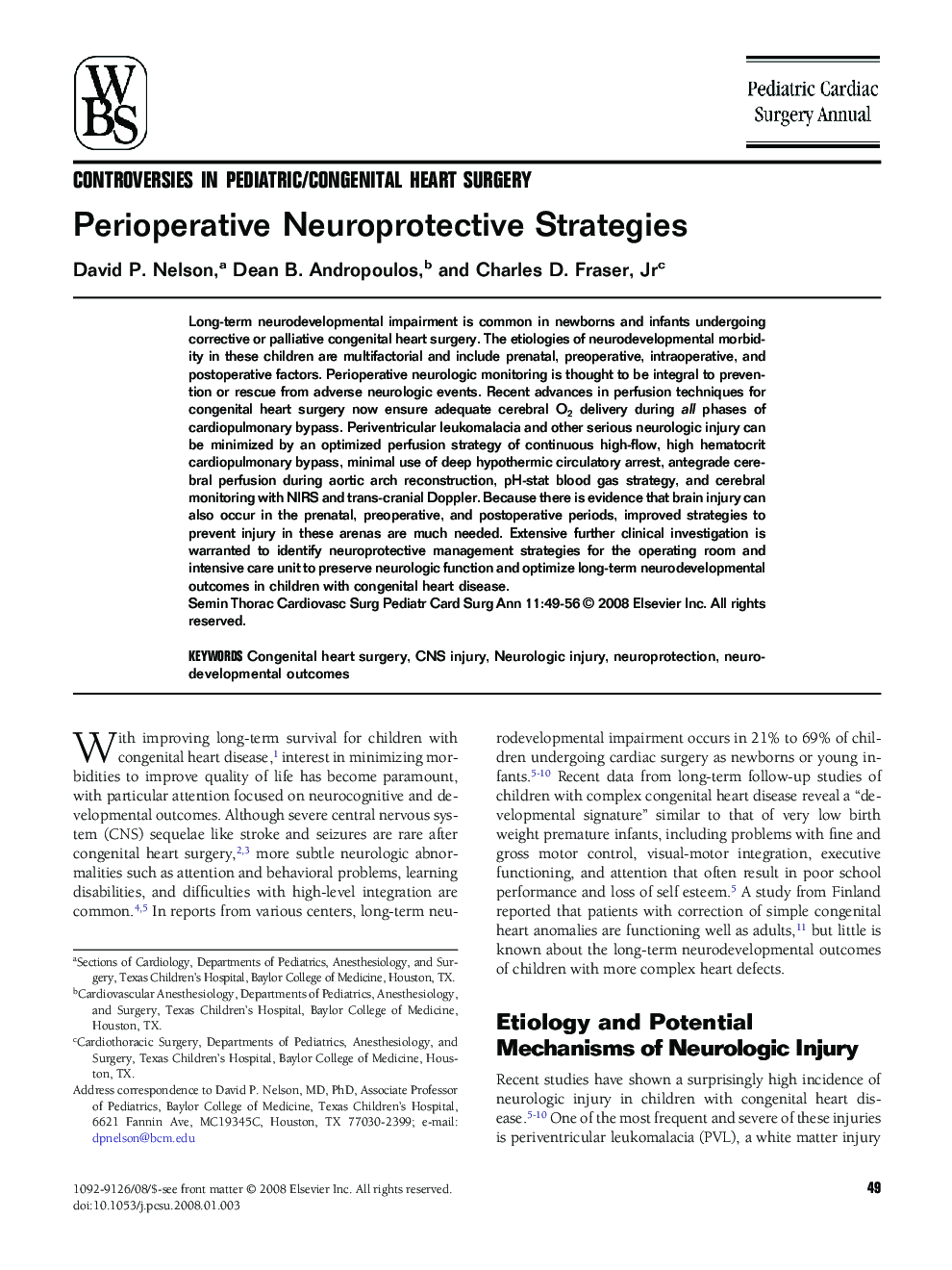| Article ID | Journal | Published Year | Pages | File Type |
|---|---|---|---|---|
| 3025916 | Seminars in Thoracic and Cardiovascular Surgery: Pediatric Cardiac Surgery Annual | 2008 | 8 Pages |
Long-term neurodevelopmental impairment is common in newborns and infants undergoing corrective or palliative congenital heart surgery. The etiologies of neurodevelopmental morbidity in these children are multifactorial and include prenatal, preoperative, intraoperative, and postoperative factors. Perioperative neurologic monitoring is thought to be integral to prevention or rescue from adverse neurologic events. Recent advances in perfusion techniques for congenital heart surgery now ensure adequate cerebral O2 delivery during all phases of cardiopulmonary bypass. Periventricular leukomalacia and other serious neurologic injury can be minimized by an optimized perfusion strategy of continuous high-flow, high hematocrit cardiopulmonary bypass, minimal use of deep hypothermic circulatory arrest, antegrade cerebral perfusion during aortic arch reconstruction, pH-stat blood gas strategy, and cerebral monitoring with NIRS and trans-cranial Doppler. Because there is evidence that brain injury can also occur in the prenatal, preoperative, and postoperative periods, improved strategies to prevent injury in these arenas are much needed. Extensive further clinical investigation is warranted to identify neuroprotective management strategies for the operating room and intensive care unit to preserve neurologic function and optimize long-term neurodevelopmental outcomes in children with congenital heart disease.
